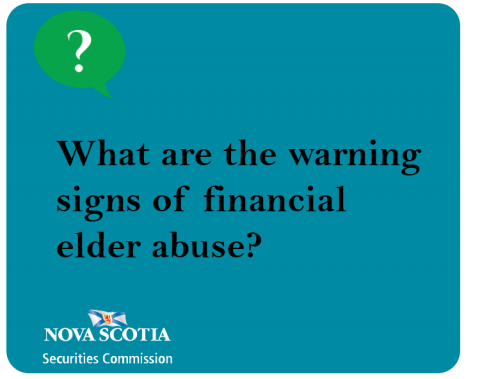Submitted by nsscadmin on

As our population continues to get older, financial elder abuse is becoming more prevalent. Many victims of financial elder abuse stay quiet out of shame, or they fear that if it’s discovered they will lose some of their freedom. They may be silent, but there are still warning signs that someone is a victim of financial elder abuse.
Mail and unpaid bills are piling up. A victim of financial elder abuse may not have enough money to cover their bills and expenses.
They are fearful, distressed, or depressed. A victim of financial elder abuse may lose their trust in people or fall into a depression over what has happened to them. They also may not be able to live their life as they once did due to a lack of funds.
They were asked to sign blank documents by an adviser, family member, friend. If someone is asking an older person to sign a blank document they should ask, why is it blank? Is that person going to fill it in and take advantage of them? Could they use that blank form to steal their money or direct money to places they don’t want it to go? Blank documents should never be signed.
They have unopened account statements or missing account statements or investment documentation. If account statements or other investment documentation is missing or being withheld it is a major red flag for fraud.
They don’t understand or know about financial decisions that someone else is making for them. Many older people are taken advantage of because they don’t understand or know about financial decisions being made for them. If you believe this is the case, talk to someone you trust to try and find some answers.
Family members or friends are pressuring them to give them money. Older adults can often be pressured, sometimes to the extreme, by family or friends to loan or even outright give them money.
Someone has accessed their account and money seems to be missing. This is an example of financial elder abuse.
They are unable to get in touch with the adviser or person who has sold them an investment. If an older person is unable to get in touch with an adviser or someone who has sold them an investment this is a major red flag of investment fraud.
